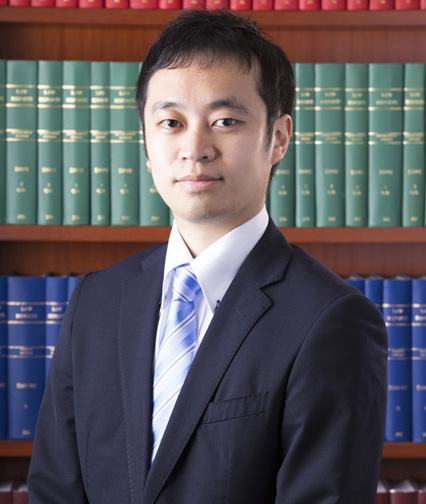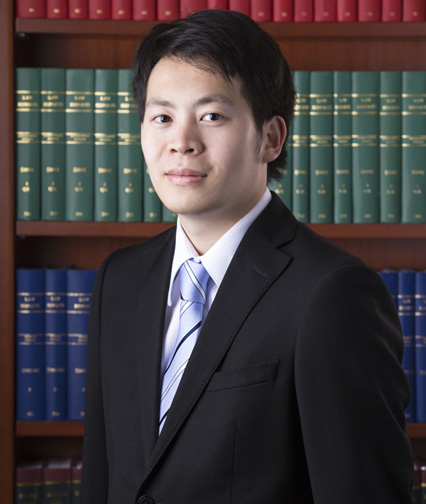Promises are often made between family members or romantic partners. More often than not, these promises are not put into writing for obvious reasons. While it may be awkward to enter into formal written contracts with your family members or significant other, sometimes the lack of a written document can cause disputes that render a relationship irreconcilable. In light of the recent case between the famous Hong Kong filmmaker Stephen Chiau Sing Chi (“Chiau”) and his former girlfriend Alice Yu Man Fung (“Yu”), we explore within this article the dangers of relying on an informal verbal agreement as opposed to a formal contract in familial or romantic relationship settings.
What are the "elements" of a contract?
Firstly, there must be an agreement between the contracting parties. An agreement may be reached when one party makes an offer, which is then accepted by the other party. An agreement may be reached through expression of words or conduct. There is no requirement that a contract must be in writing, as such, it is possible to enter into oral agreements.
Secondly, there must be an intention to create legal relations. This means that the contracting parties must have understood that the rights and obligations under the agreement are enforceable in court. Typically, there is a presumption against intention to create legal relations when the agreement is made in a domestic or social setting between persons of close relationship. For example, it will be very difficult to persuade the courts that a father who promised to give his child extra pocket money if he helped out with household chores intended that he be legally bound by his promise. However, it does not mean that there may never be commercial agreements between family members. The Court will take the surrounding facts and circumstances into consideration. Apart from looking at the relationship of the parties, the Court will also consider the subject matter of the agreement, the language used in the agreement and the manner in which the agreement was made to determine whether there was such intention.
Thirdly, the agreement must be supported by consideration. In short, this means the price of the bargain. Typically, there will be a benefit and detriment simultaneously between the contracting parties. For example, purchaser (“P”) pays $8 to vendor (“V”) in exchange for a bottle of water. The payment of $8 is a detriment to P but a benefit to V, while the provision of the bottle of water is a detriment to V but a benefit to P. In this scenario, the payment of $8 and the bottle of water are the considerations of this agreement. However, consideration is not required to take the form of monetary payment, nor does it have to be sufficient or adequate.
Finally, there must be sufficient certainty and completeness of terms so that the agreement is enforceable by the courts. If the obligations within the agreement are ambiguous, the Court may decline to enforce the contract. Therefore, it is possible for the Court to find the existence of legally binding obligations between the parties but not assist in its enforcement because the Court cannot ascertain certain essential terms. In a situation where it is apparent that there is genuine bargain between contracting parties, the Court may be prepared to imply terms into the contract. However, the test for doing this is rather restrictive. For a term to be implied within a contract, it must be reasonable, necessary to give business efficacy to the contract and so obvious that “it goes without saying”. The Court will not imply a term simply because it seems fair to do so.
Background Facts of the Case
Chiau and Yu began their romantic relationship in around 1997. At that time, Yu was working in the field of securities investment and property development, while Chiau was a successful filmmaker. Apart from operating his film production company, it was a hobby of Chiau’s to cycle around Hong Kong to look at properties for investment opportunities. As such, Chiau himself was quite acquainted with real estate investments. After the two began their relationship, Yu began providing assistance to Chiau in his business and personal investments during her spare time. She did so without any remuneration from Chiau.
In around April of 2002, Yu resigned from her job and began to assist Chiau on a full-time basis as his financial advisor and administrator of his personal finances and affairs. They initially entered into a consultancy agreement where they agreed that Yu would be paid a sum of HK$20,000 per month to provide corporate finance advisory and strategic planning services to Chiau (“Consultancy Agreement”). It was Yu’s case that such fee agreed within the agreement was always only intended to be for her travelling and basic expenses, and that on top of it, there would be some form of a profit-sharing arrangement for the investments made by Chiau.
The crux of the dispute between Yu and Chiau lies within whether there was in fact such a profit-sharing agreement between the two. Yu argued before the court that around Christmas of 2002, she and Chiau reached an oral agreement over a telephone call, whereby Chiau, in short, agreed to provide 10% share of the net profits made on all successful investments which were recommended by Yu (“Oral Agreement”). She claimed that this Oral Agreement was confirmed by an exchange of SMS messages as follows: -
Yu: “10% on profit sharing”
Chiau: “ok” (“SMS Exchange”)
However, these SMS messages were not produced as evidence at trial since Yu no longer had access to them.
While Chiau admitted that at some point in 2002 he offered to give 10% of profits from property investments to Yu, he contended that his promise was only a monetary gift as an expression of love, but not a matter of remuneration or profit sharing for any services rendered by Yu. He denied Yu’s version of the events. Instead, his recollection was that the relevant conversation happened on an evening in 2002, when the couple was on the balcony of Chiau’s home at the time, overlooking the panoramic view of the Victoria Harbour. Chiau claimed that they had been discussing property investment opportunities when he offered to make a gift of 10% of the profits to Yu since they shared similar investment visions and that he was happy to have Yu’s trust and support.
Indeed, it was undisputed that between the years of 2007 to 2011, Yu received various payments which approximately reflected 10% of certain investments made by Chiau. However, Chiau denied that those payments were made pursuant to the Oral Agreement but rather it was only because Yu was his girlfriend. After the couple separated, Yu commenced proceedings to recover HK$80 million from Chiau which represented 10% of profits in respect of various property and equity fund investments, which included a property known as 12 Pollock’s Path, the Peak (“House 12”), which was developed by Chiau during the course of his relationship with Yu and remains his home in Hong Kong till today, three houses in a residential development known as Beverley Hills in Tai Po and investment in private equity fund known as Peregrine Greater China Capital Appreciation Fund LP.
Weakness of Yu's Case - Verbal Contract or Merely a Gift
The following issues, amongst other issues, were dealt with at trial: (1) whether the Oral Agreement existed, (2) if yes, what were the terms of the Oral Agreement and (3) whether there was an intention for the Oral Agreement to be legally binding. Since Yu was the party alleging the existence of a contract, she was responsible for proving the above.
In a case where the contract is in writing, the existence of an agreement is usually not disputed. However, the Oral Agreement between Yu and Chiau was never reduced to writing. As such, the Court had to determine whether there was indeed a contract by ascertaining what was actually said and in what context. In demonstrating the existence of the Oral Agreement, Yu relied heavily on her own testimony. In reviewing her testimony, the Court noted that it must be cautious in approaching memory-based evidence. Since the relevant conversation took place over 18 years prior to the commencement of the legal proceedings, there was a risk that the recollections of events may not be accurate, not because the witness is lying to the Court, but because the events happened so long ago. The Court explained that in such situations, factual findings or inferences drawn from any documentary evidence should be given more weight than a witnesses’ recollection. The objective fact was that Yu and Chiau entered into a Consultancy Agreement on 1 April 2002 (“Consultancy Agreement”), which supposedly formalized the commercial aspect of their relationship. Yet, the Consultancy Agreement never mentioned that Yu’s remuneration was merely for basic expenses and that there will be a further profit-sharing agreement. In other words, the Court could not see a reason as to why the Oral Agreement would not have been put into writing if it had always been the parties’ intentions.
Regarding the terms of agreement, Yu relied on the simple SMS Exchange to argue that certain terms had been implied by necessity within the Oral Agreement. For instance, she argued that it was an implied term of the contract that if Chiau decided not to sell an investment recommended by Yu, Yu would still be entitled remuneration by reference to a notional sale (i.e. on the assumption that Chiau sells the investment to a third party). Yu argued that this term was essential to the contract in order to prevent Chiau from never selling his investments and depriving her of payments. This argument was key to Yu’s case since a large part of her claim against Chiau was for 10% of profits from the development of House 12, which Chiau had retained for his personal use. However, the Court found that such a term failed the test of being “necessary and obvious” to be implied into a contract. In short, the Court’s reasoning was that even if Yu recommended the investment to Chiau, if no profit was actually made by Chiau, it cannot be said necessary or obvious for Yu to still receive payment. The agreement for 10% of profits from successful investments would be coherent without the implication of a notional sale term. Furthermore, the Court also noted that the general premise of the agreement lacked commercial common sense. Since Chiau provided all the capital, he bore the risk of investments entirely. The fact that Yu is entitled to profits without any responsibility to loss seems too unrealistic in a commercial agreement. These factors ultimately contributed to the Court’s finding that the Oral Agreement could not be a binding commercial agreement.
In terms of the context in which the Oral Agreement was allegedly made, the Court could not identify from the available evidence that the exchange was intended to be commercially binding on the parties. Regardless of whether the conversation took place over a telephone call (as Yu claimed) or on the balcony of Chiau’s home (as Chiau claimed), the conversation was conducted in a social setting between romantic partners which the Court found to be not suggestive of an occasion where parties would be making binding agreements. Furthermore, when Yu explained why she remembered that the telephone conversation happened in Christmas of 2002, she said that the conversation included a discussion as to a potential Christmas gift from Chiau to herself. Chiau had offered to give her a bike for Christmas, to which she responded that she wanted 10% share in the profits of his investment instead. Looking at this communication objectively, it is difficult to see how anyone in Chiau’s position, having just offered to make a Christmas gift, would have understood Yu’s counter-offer to be one that was intended to be legally binding.
Overall, the Court found that the romantic relationship was a very important factor in this alleged agreement. It was because they were romantic partners that the agreement was concluded with such vague language and no real discussion over the practicalities of the agreement. Therefore, the Court found that there was no binding agreement made with any intention to create legal relations, and their discussion about profit share was only in relation to a gift.
Conclusion
As a matter of legal principle, legally binding contracts can be concluded orally. However, the problem with oral contracts is that if dispute arises, it is often very hard to prove the existence of a contract and even more difficult to prove that the terms had been carefully contemplated and agreed on. The Court adopts a reserved attitude in finding the existence of legally binding contracts in the absence of absolutely clear evidence because the consequence is that a party may become obliged to follow through an agreement that they did not intend to be binding on themselves. Therefore, as a matter of protecting one’s interest, if you intend for a particular promise or agreement to be binding between parties, it is best to have a clear and complete contract.
Tel:(852) 3628 0170






